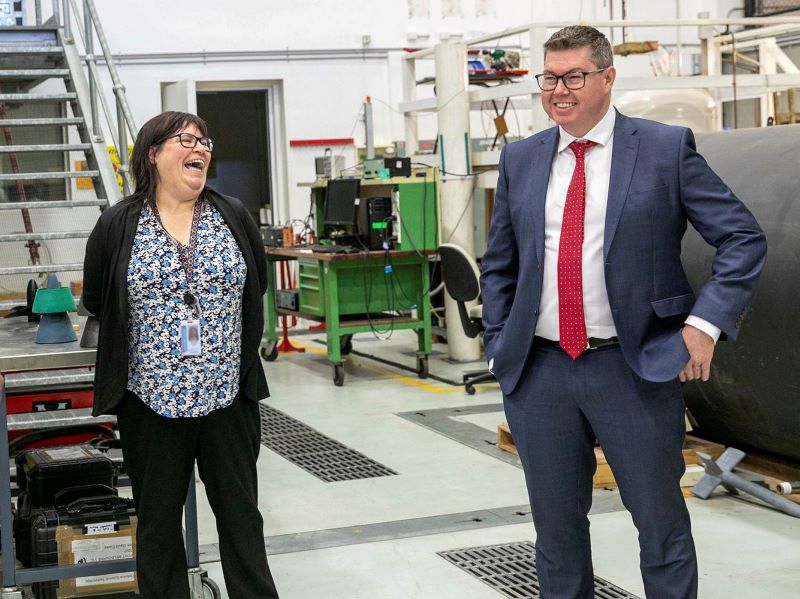Australia’s new $3.4 billion Defence accelerator launched on Saturday with an interim head, marking the start of the biggest reforms to defence innovation in decades. First on the agenda is engagement with the research sector.
The Advanced Strategic Capabilities Accelerator (ASCA) will begin under the leadership of Professor Emily Hilder, who was the chief platforms in the Defence Science & Technology Group.
ASCA launches as a Defence entity despite the Defence Strategic Review’s view it should sit as an “unencumbered entity” outside the portfolio.

ASCA was announced in April shortly after the review in a rejigging of the Albanese government’s original defence innovation agency plan.
Touted as the “missing link” between the local defence industry and the Australian forces, ASCA is an attempt to expedite the acquisition of cutting edge capabilities after decades of struggles.
“It will unlock and ignite innovation from across the nation, bringing together the best experts from different sectors – driving change from within Defence to move at the pace and scale we need,” Defence Industry minister Pat Conroy said on Saturday.
“This will mean faster acquisition and better links between Defence and industry to deliver the capabilities the soldiers, sailors and aviators of the Australian Defence Force need.”
ASCA has been launched within months of being revealed and is expected to be built up over the next 18 months to test the new approach.
The government has committed $748 million over four years to ASCA and $3.4 billion over the next decade.
It replaces the industry and research funding programs of the Defence Innovation Hub and the Next Generation Technologies Hub, both of which are no longer seeking or accepting applications.
The Defence Strategic Review and an independent expert have recommended ASCA eventually sit outside the Department of Defence’s control and be led by experts from industry and academia.
But it will at least begin as a defence entity and its first leader comes from within the Defence Science & Technology Group (DSTG), which had run the major programs ASCA is replacing.
Professor Emily Hilder has been made interim head of ASCA, moving from her chief platforms role at DSTG.
Prior to joining DSTG, Professor Hilder was the director of the University of South Australia’s Future Industries Institute, where industry collaboration is a core focus.
Her research background is in analytical chemistry and materials science. Professor Hilder is a Fellow of the Australian Academy of Technological Sciences and Engineering and the Royal Australian Chemical Institute. She won the Eureka Prize for outstanding science in safeguarding Australia in 2019.
ASCA’s initial focus is on engagement though the Australian defence science and university networks. It will then move to state based industry forums hosted by Professor Hilder.
Do you know more? Contact James Riley via Email.

